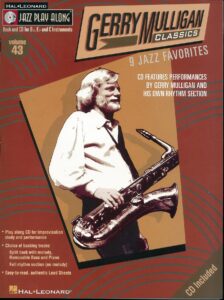Table of Contents
Come join us now, and enjoy playing your beloved music and browse through great scores of every level and styles!
Can’t find the songbook you’re looking for? Please, email us at: sheetmusiclibrarypdf@gmail.com We’d like to help you!
Laura: Bob Brookmeyer – Gerry Mulligan

Best Sheet Music download from our Library.
Laura · Bob Brookmeyer · Gerry Mulligan Western Reunion ℗ 2021 Chameleon Archive Ed Released on: 2021-07-27 Composer: Milt Raskin Lyricist: Johnny Mercer.
Please, subscribe to our Sheet Music Library.
If you are already a subscriber, please, check our NEW SCORES’ page every month for new sheet music. THANK YOU!

Please, subscribe to our Sheet Music Library.
If you are already a subscriber, please, check our NEW SCORES’ page every month for new sheet music. THANK YOU!
Remembering Gerry Mulligan
Gerry Mulligan (April 6, 1927, New York, USA – January 20, 1996, Darien, Connecticut, USA) was one of the most important and respected white jazz musicians of the last half of the 20th century.
An instrumentalist gifted with impeccable technique, a talented composer, and an original and intelligent arranger, the baritone saxophone player, Gerry Mulligan throughout his prolific and extraordinary career, has participated in significant stylistic movements in jazz. He has led numerous groups and orchestras of all sizes and configurations and recorded an impressive number of albums to his name. Also, as a guest, he has played with some of the most notable figures in jazz.
Considered one of the four great baritone saxophones in the history of jazz, Mulligan also mastered the soprano, tenor, and clarinet, and was an accomplished pianist. Born in New York on April 6, 1927, he grew up in Philadelphia to a middle-class Irish Catholic family. A good student in high school, his musical inclination led his parents to buy him a saxophone. After studying music, he collaborated with Elliot Lawrence’s orchestra before returning to his hometown at the age of eighteen, where he quickly joined drummer Gene Krupa’s big band.
In 1947, he befriended Charlie Parker and joined Claude Thornhill’s orchestra as a baritone saxophonist and arranger, the band where the cool movement originated. There he met the band’s other arranger, Gil Evans, with whom he shared ideas, concepts, and theory. Together in 1949, they participated in the creation of the historic Nonet, which, led by trumpeter Miles Davis, marked a milestone in jazz of that era. In 1951, he recorded his first album under his own name for the Prestige label, entitled “Mulligan Plays Mulligan.” After receiving critical and popular acclaim, he moved to California on the West Coast, where he began a new phase in his career.
He liked the musical environment and the musicians he found there, and began writing arrangements for Stan Kenton, the leader of a magnificent big band. One day, he met a trumpet player named Chet Baker. With him, he formed one of the most successful groups of the time, the famous “Gerry Mulligan Pianoless Quartet,” a piano-less quartet in which the two wind instruments (baritone and trumpet) were accompanied only by double bass and drums. This offered a totally new sound, different from what was heard at the time. With the success of this formula, he achieved fame and began touring Europe, where he regularly traveled on several occasions. Thus, in the midst of the decade, Mulligan crossed the 1950s, established as one of the best jazz musicians of the moment.
The 1960s saw him organize and launch his Concert Jazz Band, a group of thirteen (sometimes more) musicians with whom he unleashed his talents as an arranger, giving him the opportunity to give his music greater volume and breadth. In 1964, he returned to the quartet and sextet formula with Bob Brookmeyer, Art Farmer, and guitarist Jim Hall, with whom he toured Europe once again. In 1968, he joined Dave Brubeck’s quartet, replacing alto saxophonist Paul Desmond. With Brubeck, Mulligan remained until 1972. Throughout the 1980s and 1990s, Mulligan continued to record, produce, and arrange music. He also participated in countless jazz concerts and festivals in Newport, Montreux, Nice, Japan, and elsewhere.
From his extensive and extraordinary discography, three periods stand out: his participation in the Capitol Nonet with Miles Davis and Gil Evans, recorded on the album: “Birth of The Cool” in 1949; his recordings as a quartet with trumpeter Chet Baker in the 1950s, recorded on the album: “Gerry Mulligan Quartet with Chet Baker”; and his time with the “Concert Jazz Band” in the mid-1960s and his album “Gerry Mulligan ’63 The Concert Jazz Band”. Gerry Mulligan was one of the great white jazz musicians, and his contribution to the history of this music was impressive.
Browse in the Library:
Or browse in the categories menus & download the Library Catalog PDF:
